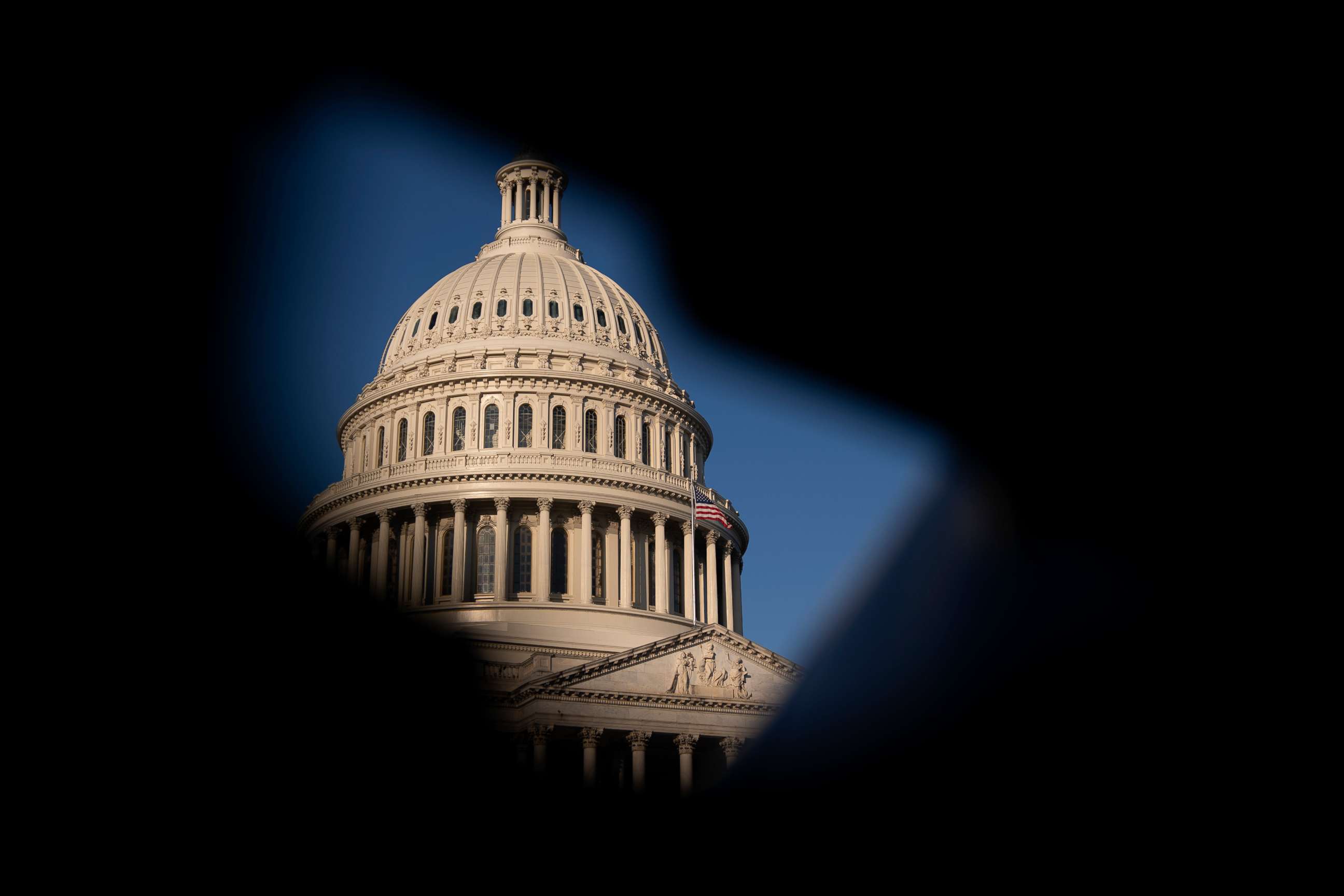Senate sends defense bill to Trump's desk with veto-proof majority
Trump has said he intends to veto the must-pass bill.
The Senate sent a $740.5 billion defense bill to President Donald Trump's desk with a veto-proof majority Friday afternoon, but the fight over the bill may just be getting started.
Both the House and the Senate have signed off on the proposal which, among other things, gives military servicemembers a 3% raise, increases hazard pay and provides military funding to address COVID-19.
But Friday's vote sets the stage for a collision between Congress and Trump, who has said as recently as Tuesday that he intends to veto the must-pass bill.
"I hope House Republicans will vote against the very weak National Defense Authorization Act (NDAA), which I will VETO," Trump tweeted Tuesday. The bill cruised through the House earlier this week by a vote of 335-78.
It's unclear yet if the president will actually use his veto power to ground the bill but, if he does, Congress members will have to scramble back to Washington -- possibly cutting their holiday recess short -- to hold veto-override votes in both chambers before the end of the year.
If successful, it would be the first veto-override of Trump's presidency.
If unsuccessful, Congress will have to start from zero on a defense bill in the new year. It would be the first time in 60 years that the bill has failed to pass.
Sen. James Inhofe, R-Okla., who leads the Senate Armed Services Committee, called the bill an absolutely essential measure and suggested the president has been poorly-advised to reject the bill.
"I don’t know who is ill advising the president to be concerned about an issue that has nothing to do with the military," Inhofe said. "I know the president has been the strongest -- I don’t know if there has ever been a president that has been a stronger supporter of our military and our kids in harm’s way than President Trump."
On Tuesday, Inhofe called Trump's opposition "disappointing."
"I'm disappointed, because it is really critical," Inhofe told reporters Tuesday, adding that "It's the most important bill of the year."

Sen. Kevin Cramer, R-N.D., a staunch ally of the president, released a statement Friday celebrating the passage of the bill and urging Trump not to block it.
"President Trump should expand his incredible success in rebuilding our military and sign it without reservation," Cramer said in the statement.
Trump has two major hang ups, both of which he's threatened to veto the bill over.
First, the president is opposed to an amendment included in the bill that would require military bases named after Confederate generals to change their names.
That amendment, sponsored by Sen. Elizabeth Warren, D-Mass., has been unpopular with Trump since June, when conversations about renaming bases emerged during the protests that took place following the death of George Floyd.
At the time that the amendment was adopted by the Senate Armed Services Committee, White Houe Press Secretary Kaleigh McEnany said the president would veto any defense bill that included it. And Trump doubled down on that in a tweet.
"Seriously failed presidential candidate, Senator Elizabeth 'Pocahontas' Warren, just introduced an Amendment on the renaming of many of our legendary Military Bases from which we trained to WIN two World Wars," Trump tweeted. "Hopefully our great Republican Senators won't fall for this!"
Despite the President's objection, the amendment survived scrutiny during conference with the House and passed both chambers this week.
Trump has also threatened to veto the defense bill because it does not include a provision to repeal a federal law that gives tech companies broad freedom to choose if and how they moderate user-generated content on their platforms.
The law -- Section 230 of the Communication Decency Act -- shields tech companies from legal liability for content posted by third parties to their platforms. Republicans, who support repealing or at least reforming Section 230, have tried mightily to get Trump to pull back from his threat, pointing to reform legislation that is being worked on in the Senate.
But so far, Trump has shown no signs of giving in.
The defense bill hit a slight delay earlier in the week on the objection of Sen. Rand Paul, R-Ky., who threatened to hold up a vote on the bill over a provision that limits the president's ability to draw down troops from Afghanistan.
"That amendment alone is enough to make me object to it, as well as the amount of spending,” he said Thursday.
Paul's objection delayed a vote on a stop-gap measure to fund the government, threatening a temporary government shutdown.
But on Friday, Paul said he would allow the vote to proceed.
While the defense bill received broad support from members on both sides of the aisle, it faced objections from each party's most off-center members. Progressives like Sen. Bernie Sanders and Sen. Jeff Merkley opposed the bill, as did conservatives like Sen. Josh Hawley and Sen. Tom Cotton.
The bill must become law before Jan.3, 2021 or it will expire.
ABC News' Trish Turner and Mariam Khan contributed to this report




